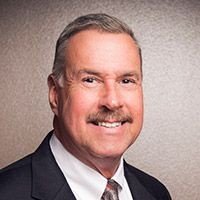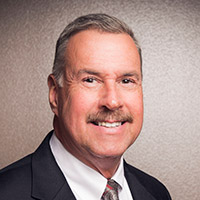7 Reasons to Hire a Retirement Income Specialist
Generating a lasting income stream once you quit working takes a different set of skills than saving and investing.


Profit and prosper with the best of Kiplinger's advice on investing, taxes, retirement, personal finance and much more. Delivered daily. Enter your email in the box and click Sign Me Up.
You are now subscribed
Your newsletter sign-up was successful
Want to add more newsletters?

Delivered daily
Kiplinger Today
Profit and prosper with the best of Kiplinger's advice on investing, taxes, retirement, personal finance and much more delivered daily. Smart money moves start here.

Sent five days a week
Kiplinger A Step Ahead
Get practical help to make better financial decisions in your everyday life, from spending to savings on top deals.

Delivered daily
Kiplinger Closing Bell
Get today's biggest financial and investing headlines delivered to your inbox every day the U.S. stock market is open.

Sent twice a week
Kiplinger Adviser Intel
Financial pros across the country share best practices and fresh tactics to preserve and grow your wealth.

Delivered weekly
Kiplinger Tax Tips
Trim your federal and state tax bills with practical tax-planning and tax-cutting strategies.

Sent twice a week
Kiplinger Retirement Tips
Your twice-a-week guide to planning and enjoying a financially secure and richly rewarding retirement

Sent bimonthly.
Kiplinger Adviser Angle
Insights for advisers, wealth managers and other financial professionals.

Sent twice a week
Kiplinger Investing Weekly
Your twice-a-week roundup of promising stocks, funds, companies and industries you should consider, ones you should avoid, and why.

Sent weekly for six weeks
Kiplinger Invest for Retirement
Your step-by-step six-part series on how to invest for retirement, from devising a successful strategy to exactly which investments to choose.
I often talk to clients and prospective clients about the “two halves” of their financial lives.
I call the “first half” wealth contribution and wealth accumulation and refer to the “second half” as wealth distribution and wealth transfer.
It all sounds pretty much the same, but of course it isn’t. The second half, your pre-retirement and retirement years, can have layers of difficulty that are far more unpredictable and uncontrollable than the first half.
From just $107.88 $24.99 for Kiplinger Personal Finance
Become a smarter, better informed investor. Subscribe from just $107.88 $24.99, plus get up to 4 Special Issues

Sign up for Kiplinger’s Free Newsletters
Profit and prosper with the best of expert advice on investing, taxes, retirement, personal finance and more - straight to your e-mail.
Profit and prosper with the best of expert advice - straight to your e-mail.
Why generating reliable income in retirement is so tough
During the first half of your financial life, you collect your paycheck, figure out how much you can afford every month to contribute (wealth contribution) to your nest egg, and carefully contribute that amount into your 401(k) or some other retirement account (wealth accumulation). You’ll likely run into a few financial obstacles in the first half, such as buying a house and the expenses that come with having children. And as you move forward, you might choose to broaden the asset allocation in your portfolio. But even if you make an investment mistake early on, you’ll have a good chance of catching up, because you’ll still have that paycheck coming in.
In the second half of your financial life, things tend to get more complicated. The consequences of making a mistake can be more costly, because now you’re taking money out of your accounts regularly (wealth distribution), and you no longer have your steady paycheck to invest.
Many of the obstacles are the same during one’s entire financial life, but new ones can appear during the second half. There are many specific reasons to consider working with a financial adviser during this second half, including these top seven:
1. Creating income.
When you don’t have that regular paycheck anymore, you lose your safety net. Instead, you must create income from the money you invested and make it last as long as possible. You’ll get a monthly boost from Social Security and/or maybe from a pension. But mostly it’s up to you and your adviser to figure out when and how much you’ll need from your retirement accounts. If you plan poorly, you could use up your money way too fast.
2. Outpacing Inflation.
Inflation has been pretty low for some time now, but experts are predicting a rise in the near future. Even if it lands at the Fed’s goal rate of 2% (and that’s lower than most are forecasting), you’ll see a decline in your purchasing power and, consequently, your standard of living. Most people think they won’t need as much when they’re retired, but even the basics will cost more. With this in mind, you’ll need to keep your nest egg invested but safeguarded against the unexpected.
3. Guarding against the unexpected.
The market is hitting record highs right now, but that can’t last forever. Whether it’s the inevitable market correction, some world political event or a natural disaster that sends things into a spiral, you have to be prepared. To be a success in the second half, you must understand your capacity and tolerance for risk. You won’t have as much time to come back if the market tanks when you’re in the retirement red zone, the 10 years before and after retirement.
4. Factoring in longevity.
Thanks to healthier lifestyles and medical breakthroughs, life expectancy for Americans has increased significantly. According to the Social Security Administration, a 65-year-old man today can expect to live, on average, until age 84.3, a 65-year-old woman can expect to live to age 86.6, and one out of every four 65-year-olds will live past 90. Naturally, you want to stay in the game for as long as possible, but that also means your investment portfolio may have to last for 30 years or more. If you don’t have a plan for guaranteed income, you could end up having to downsize the lifestyle you dreamed of or possibly depend on others for help.
5. Being tax efficient.
Many retirees focus on avoiding taxes in the short term only to be hit hard later on. During the withdrawal phase, the decision about when and where to remove assets should be combined with a plan to avoid landing in a higher tax bracket than you expected and keeping as much of your Social Security out of the taxable equation if possible.
6. Managing health care costs.
According to the U.S. Department of Health and Human Services, 70% percent of those who live past the age of 65 will need long-term care. You’ll need to put a plan in place to cover those costs – as well as your day-to-day health care – so these costs don’t eat up your retirement income.
7. Estate and legacy planning.
Most retirees hope to leave some sort of financial gift to their loved ones and/or a favorite charity (wealth transfer), but the planning often gets pushed to the back burner. You must include this as part of your overall financial strategy to make sure everyone gets what you want them to have and in a way that isn’t burdened by taxes.
How to find someone to help you in your second half
If you didn’t seek help from an adviser before, you’ll definitely want to find someone you can trust to help you in the second half. The problem is most financial professionals practicing today work with clients to accumulate money and make it grow. This is why I have listed the following questions to help you find a retirement adviser who has made the switch and has learned to manage the second half of the financial life for their clients.
Here are some questions to ask as you search for a retirement adviser:
- How are you going to create income for me in retirement?
- How are you protecting me in the event of a market downturn? What happens if 2008 happens again and the market loses 50%?
- How are you going to protect my nest egg but also preserve my purchasing power so I can pay my bills?
Make sure you go with an experienced adviser who’s equipped to help you enjoy the “second half” of your financial life and to wrap things up with a win.
Kim Franke-Folstad contributed to this article.
No part of this communication should be construed as an offer to buy or sell any security or provide investment advice or recommendation. Securities offered through GF Investment Services, LLC, Member FINRA/SIPC, 501 North Cattlemen Road, Suite 106, Sarasota, FL 34232. (941) 441-1902. Investment advisory services offered through Global Financial Private Capital, LLC, an SEC Registered Investment Advisor. SEC registration does not imply any level of skill or training.
Profit and prosper with the best of Kiplinger's advice on investing, taxes, retirement, personal finance and much more. Delivered daily. Enter your email in the box and click Sign Me Up.

Roger Ford has 30 years of experience in retirement income planning. After receiving his formal education at the University of Cincinnati, Ford started his own business, Conservative Financial Solutions. He is a Registered Financial Consultant (RFC) and obtained his certification through the International Association of Registered Financial Consultants. He actively holds Series 6, 63 and 65 licenses and is a licensed agent in life, accident and health and property and casualty insurance.
-
 Nasdaq Leads a Rocky Risk-On Rally: Stock Market Today
Nasdaq Leads a Rocky Risk-On Rally: Stock Market TodayAnother worrying bout of late-session weakness couldn't take down the main equity indexes on Wednesday.
-
 Quiz: Do You Know How to Avoid the "Medigap Trap?"
Quiz: Do You Know How to Avoid the "Medigap Trap?"Quiz Test your basic knowledge of the "Medigap Trap" in our quick quiz.
-
 5 Top Tax-Efficient Mutual Funds for Smarter Investing
5 Top Tax-Efficient Mutual Funds for Smarter InvestingMutual funds are many things, but "tax-friendly" usually isn't one of them. These are the exceptions.
-
 Social Security Break-Even Math Is Helpful, But Don't Let It Dictate When You'll File
Social Security Break-Even Math Is Helpful, But Don't Let It Dictate When You'll FileYour Social Security break-even age tells you how long you'd need to live for delaying to pay off, but shouldn't be the sole basis for deciding when to claim.
-
 I'm an Opportunity Zone Pro: This Is How to Deliver Roth-Like Tax-Free Growth (Without Contribution Limits)
I'm an Opportunity Zone Pro: This Is How to Deliver Roth-Like Tax-Free Growth (Without Contribution Limits)Investors who combine Roth IRAs, the gold standard of tax-free savings, with qualified opportunity funds could enjoy decades of tax-free growth.
-
 One of the Most Powerful Wealth-Building Moves a Woman Can Make: A Midcareer Pivot
One of the Most Powerful Wealth-Building Moves a Woman Can Make: A Midcareer PivotIf it feels like you can't sustain what you're doing for the next 20 years, it's time for an honest look at what's draining you and what energizes you.
-
 I'm a Wealth Adviser Obsessed With Mahjong: Here Are 8 Ways It Can Teach Us How to Manage Our Money
I'm a Wealth Adviser Obsessed With Mahjong: Here Are 8 Ways It Can Teach Us How to Manage Our MoneyThis increasingly popular Chinese game can teach us not only how to help manage our money but also how important it is to connect with other people.
-
 Looking for a Financial Book That Won't Put Your Young Adult to Sleep? This One Makes 'Cents'
Looking for a Financial Book That Won't Put Your Young Adult to Sleep? This One Makes 'Cents'"Wealth Your Way" by Cosmo DeStefano offers a highly accessible guide for young adults and their parents on building wealth through simple, consistent habits.
-
 Global Uncertainty Has Investors Running Scared: This Is How Advisers Can Reassure Them
Global Uncertainty Has Investors Running Scared: This Is How Advisers Can Reassure ThemHow can advisers reassure clients nervous about their plans in an increasingly complex and rapidly changing world? This conversational framework provides the key.
-
 I'm a Real Estate Investing Pro: This Is How to Use 1031 Exchanges to Scale Up Your Real Estate Empire
I'm a Real Estate Investing Pro: This Is How to Use 1031 Exchanges to Scale Up Your Real Estate EmpireSmall rental properties can be excellent investments, but you can use 1031 exchanges to transition to commercial real estate for bigger wealth-building.
-
 Should You Jump on the Roth Conversion Bandwagon? A Financial Adviser Weighs In
Should You Jump on the Roth Conversion Bandwagon? A Financial Adviser Weighs InRoth conversions are all the rage, but what works well for one household can cause financial strain for another. This is what you should consider before moving ahead.